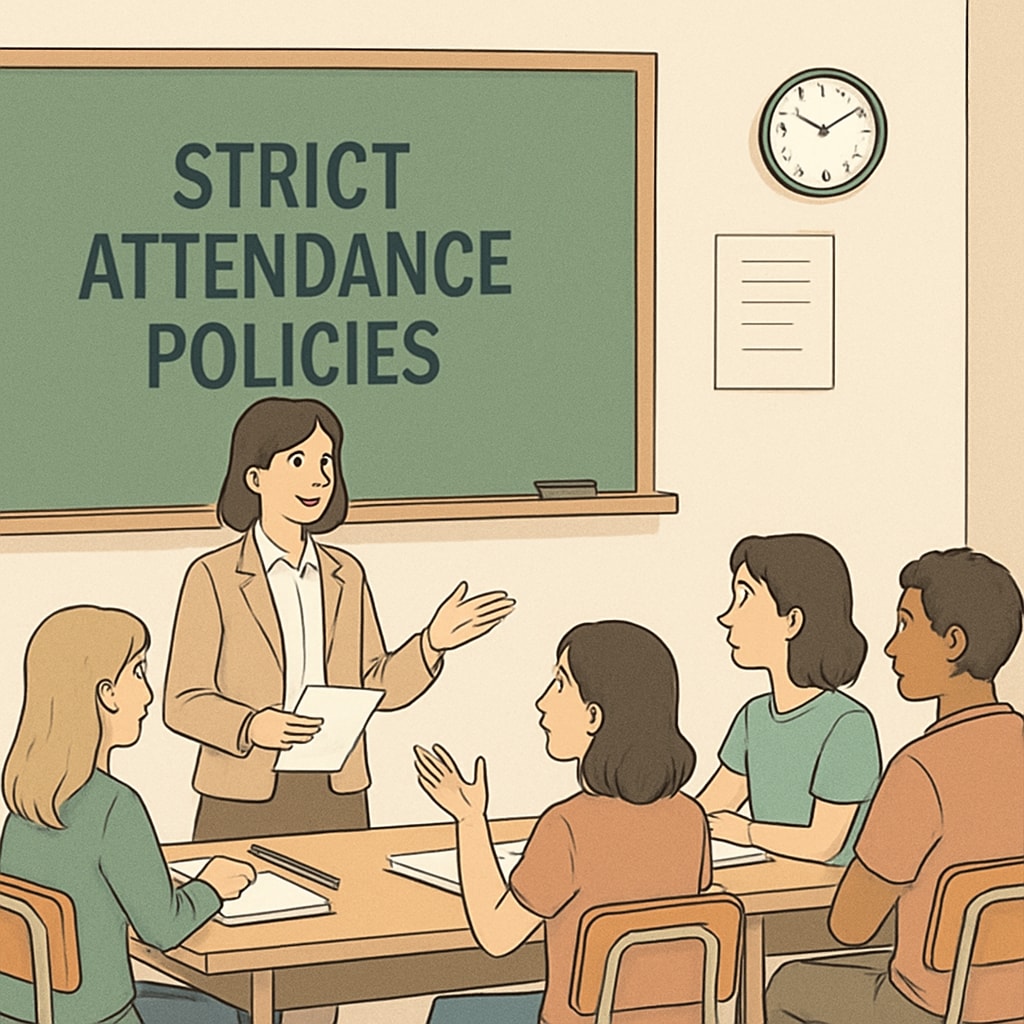Strict attendance policies, particularly those treating 72-hour absences as truancy, have become a contentious issue in K12 education. While these policies aim to improve accountability, they often raise questions regarding excessive intervention in student and family life. Moreover, the involvement of religious organizations in disciplinary measures adds another layer of complexity, sparking debates about the boundaries between education and external influence.
Are Attendance Policies Helping or Hurting Students?
Attendance policies in schools serve as a means to ensure that students remain engaged in their education. However, when these policies become overly rigid—such as defining absences exceeding 72 hours as “truancy”—they risk punishing rather than supporting students. Families facing unforeseen circumstances, such as health emergencies or personal crises, may feel unjustly targeted by such inflexible rules.
For example, a definition of truancy on Wikipedia highlights its historical use to address chronic absenteeism. Yet strict modern interpretations often fail to consider the diverse reasons behind missing school. As a result, these policies can inadvertently alienate students and families, creating mistrust between them and educational institutions.

External Intervention in School Discipline: The Role of Religious Organizations
The introduction of religious organizations into school disciplinary processes has been increasingly controversial. While some argue that faith-based groups can offer moral guidance, others question their appropriateness in secular education systems. This concern becomes even more pronounced when these organizations are tasked with enforcing attendance-related discipline.
For instance, involving religious entities in truancy management may blur the lines between education and religion, potentially infringing on family beliefs or cultural practices. According to the concept of secularism as explained on Britannica, public institutions should remain neutral in matters of faith. When schools partner with religious groups for disciplinary purposes, they risk undermining this neutrality and alienating families who may not share the same values.

Striking a Balance: Solutions for Effective Attendance Policies
To create a more balanced approach, schools must prioritize collaboration and flexibility. Here are three recommendations for improving attendance policies:
- Tailored Responses: Develop policies that consider individual circumstances, such as health or family emergencies, rather than applying blanket rules.
- Transparent Communication: Engage families in open discussions about attendance expectations and disciplinary procedures, fostering mutual understanding.
- Secular Support Systems: Replace religious organizations with neutral, professional counselors or social workers to manage attendance-related issues.
By adopting these measures, schools can reduce the negative impact of strict attendance policies while respecting family autonomy and diversity.
Readability guidance: Use clear, concise language throughout the article, emphasizing short paragraphs and lists to communicate key points effectively. Incorporate transitional phrases like “however” and “for example” to enhance flow.


